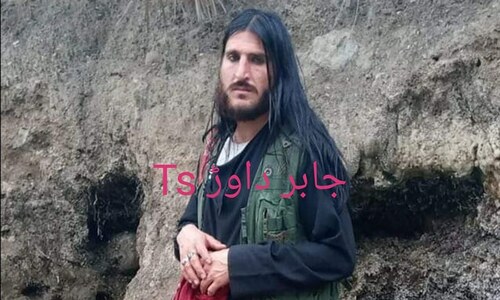The Counter Terrorism Department (CTD) of Sindh police arrested a "most wanted" terrorist of the outlawed Tehreek-i-Taliban Pakistan (TTP) in Karachi, the security agency said in a news release on Sunday.
According to the department, the CTD and Rangers conducted a joint operation near the Naurus Chowrangi in the SITE area, located in Karachi's district west, after they received intel from a source.
During the raid, a man identified as Muhammad Ilyas was arrested. Illegal weapons and ammunition were also seized from his possession, the CTD said.
The most wanted terrorist had been hiding in Saudi Arabia, the statement said. "During interrogation, the suspect confessed that he, along with his accomplices, killed Sher Ahmed Khan in the SITE area in 2013."
The news release added that Ilyas had joined the TTP in 2012. "He is being interrogated in other cases as well, while further confirmations are underway from nearby police stations," the department added.
Last month, Pakistan Army killed two "important and most wanted" terrorists in North Waziristan district's Boya area. In a statement, the military's media affairs wing had said that the militants had been actively involved in terrorist activities in the area.
Meanwhile, on May 31, the government of Pakistan and TTP agreed on an indefinite ceasefire to find an end to the nearly two decades of militancy in the tribal border region.
A Dawn report said that the two sides agreed to extend the ceasefire indefinitely and pursue negotiations to end the conflict that has seen mass dislocation and killings of thousands of people in Pakistan’s tribal region and the country at large.
The development came after days of “intense and extensive negotiations” in the Afghan capital attended by senior level delegations from the two sides that at one point seemed close to breakdown.
The previous PTI government and the TTP had agreed to a month-long ceasefire to hold talks last year. However, the militant group had declined to extend the ceasefire after the one-month period ended, accusing the government of failing to honour the decisions reached earlier.












































